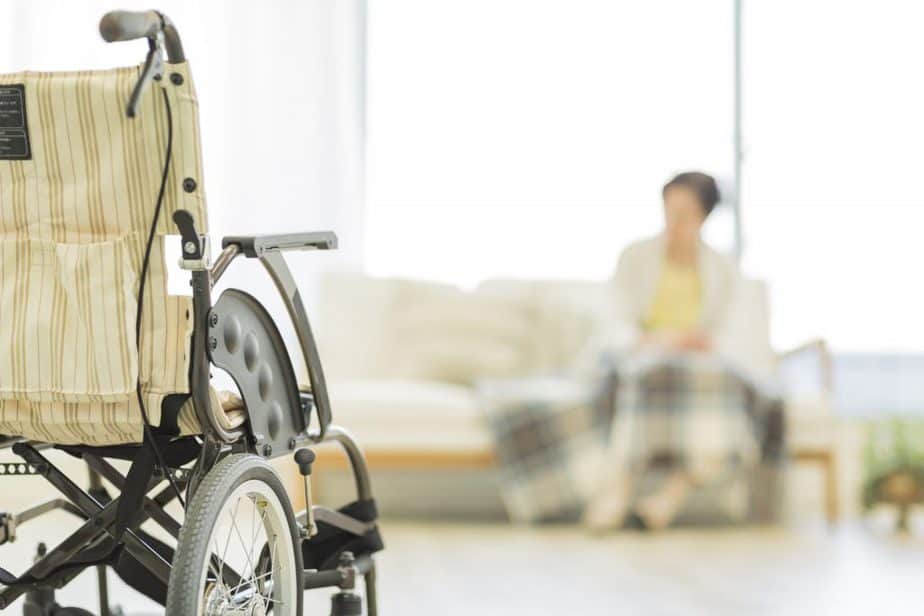
At some point in their lives, most people will know someone who lives in a nursing home or assisted living facility. It might be a grandparent, parent, aunt, uncle, etc. You might have set them up in that facility if they wanted you to, or you felt that they could no longer live on their own anymore. Let’s face the reality – we can’t all be young for all of our lives. And even with CrossFit training, our bodies will still begin to deteriorate.
Once they’re in that nursing home or assisted living facility, you’ll probably feel better. If they fall or something else happens to them, then there are people there to help them.
That’s how it’s supposed to go, anyway. Unfortunately, horror stories exist of facilities that don’t care for their charges like they’re supposed to.
You should keep track of what’s happening with your loved one, even when they are in a nursing home.
Here are some ways for you to do that.
Visit Them Frequently
The most obvious way to keep track of how your loved one is doing is to visit them in the nursing home or the assisted living facility often. By doing so, you can:
- Gauge how they’re feeling
- Look them over for any bruises, cuts, or other abuse or neglect signs
- Make sure that they’re healthy, well-fed, and getting their meds
If something isn’t right at the facility, you should be able to tell fairly quickly if you visit your relative often. Even if the staff doesn’t tell you when something happens, you’ll detect it.
For instance, traumatic brain injuries can interfere with an individual’s cognitive function. If your relative has a slip-and-fall, you’ll know immediately, and you can look into how it happened. That’s a worst-case scenario, but the more you’re physically there, the more likely you’ll notice an injury or sickness, whether severe or slight.
Hire a Lawyer
Hiring a lawyer can provide essential assistance in monitoring and ensuring the well-being of a loved one in a nursing home, often proving more effective than relying solely on insurance. While insurance provides financial coverage, a lawyer specializes in legal oversight, advocating for your loved one’s rights and safety. They have the expertise to navigate complex legal systems and hold nursing homes accountable for any negligence or abuse. Furthermore, it’s crucial to engage a lawyer licensed in your specific state, as they are familiar with the state’s laws and regulations. For instance, if you reside in Cleveland, employing a nursing home abuse attorney in Cleveland ensures localized knowledge and experience, offering tailored legal support for any issues arising in that jurisdiction.
Call Them Often
Another thing to do is call and talk to them frequently if you can’t visit as much. You should be sure that they have a cellphone that they know how to use. If your older relative doesn’t know much about technology, simplified cellphones exist that they can use easily.
Calling often:
- Will improve their mood because it shows that you care
- Can keep their mind sharp when you talk to them about current events
Weekly phone calls, or calling even more than that, is something that many older adults really like. You can catch them up on what you’re doing, and also the other family members.
FaceTime with Them
You can also set up a face-to-face call with them through FaceTime or a similar service. There are apps like Zoom that the individual in the nursing home can use. You can teach them to call you for these interactions via their cellphone, a laptop, or a desktop. Whichever makes them feel comfortable.
You can even have a set time every week to do it. You might bring the whole family together, and all of you can get in on the call. It’s confirmation that you care about the person, and you want to make sure they’re doing well.
You Can Take Them for Frequent Field Trips
There is also nothing wrong with seeing your relative and taking them out for the day whenever you get the chance. You might go to the park on a nice day and sit on a bench or take a walk in the woods if they’re up to it.
Different nursing homes and assisted living facilities have various policies for this sort of thing. Still, they shouldn’t have any problem with you setting up an appointment and taking your relative out for the day sometimes.
It’s a way to show them that you still want them to be a part of your life and your family’s lives.
Tell Them They Can Talk to You
One more thing you can do is speak to your loved one and tell them they can always contact you and let you know if anyone is mistreating them. Make sure and tell them that if elder abuse occurs, they can always reach out to you, and you will believe and help them.
Some older adults end up thinking that because they live in a nursing home now, that their family no longer cares about them. That is rarely the case. You need to involve them in your life, though, and to prioritize them.
By doing so, you’ll probably prolong their life, and make the rest of their time more pleasant. Let them know you’ll never forget about them.

















Follow Us